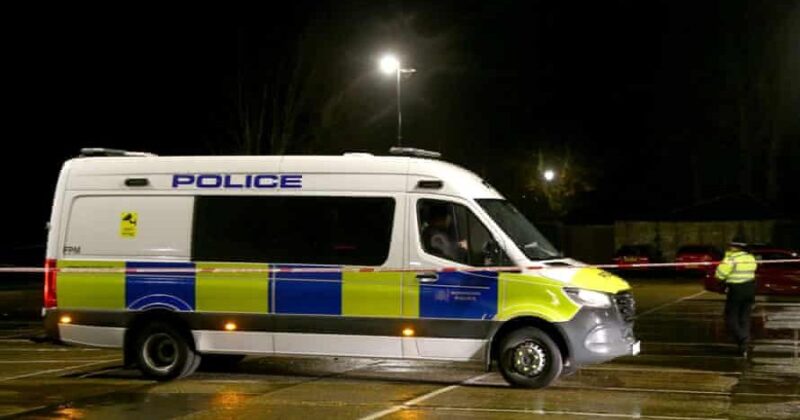

By Jeremy Dewar
An Old Bailey jury took just three hours to find police sergeant Martyn Blake not guilty of murder on 21 October. The verdict left anti-racists and the Black community deeply shocked and angry.
The family said in a statement, ‘Chris was stolen from us, and this decision shows his life—and many others like him—does not matter to the system.’ Indeed it appears that Black lives do not matter in Britain.
Bodycam footage, which was shown to the jury, reveals that the police operated a ‘hard stop’ to immobilise Kaba’s Audi. True, he did try and ram his way out, but his car could make no more than a metre’s headway before it was stopped again.
As Blake ran to the front of the Audi, the suspect’s car was stationary with six firearms pointed at the driver. It was at this moment, when Kaba posed no risk to any of the officers, that he was shot in the forehead through the windscreen. From the initial stop until the trigger was pulled a mere 13 seconds had passed.
Police attack grievers
The trial was never going to be fair. The decision to bring Blake to trial and to name him (as they would any other accused adult) was met by an open act of defiance and insubordination by 300 officers handing in their firearms licences. This was a blatant attempt to intimidate judge and jury.
Throughout, the Met, supported by Tory MPs and the Daily Telegraph, who dubbed Sgt Blake a ‘hero’, have maintained he should not be on trial. During the trial officer after officer came forward to explain that they would have acted in exactly the same manner if they were in his shoes. If he was guilty, it was implied, then all police officers would be guilty.
Met officers even offered the ridiculous excuse that Kaba was not unarmed because the Audi he was driving should be classed a weapon: reviving the racist trope that a Black man in charge of a car must be suspicious.
But it was after the trial that the Metropolitan Police went into overdrive. In a media blitz the force made a series of allegations designed to kill off the campaign for justice, in the process smearing Kaba’s family and by extension the whole community.
They ‘revealed’ that Chris was a leading member of one of the two most violent gangs in London; that he had shot a rival gang member in the leg; that there was a restraining order to prevent him seeing the mother of his unborn child.
All of this is irrelevant to the shooting, since at the time police officers attested they did not know the car’s driver was Kaba.
None of this is to ignore the fact that criminal gangs blight communities, but there is no death sentence in the British justice system, nor are police officers allowed to execute suspects on sight. Such killings do not reduce the threat of gangs.
No justice, no peace
Since 1990 police marksmen and women have shot dead 83 people and over 1,900 have died while in police custody or following contact with the police. In all of this only one officer has ever been found guilty of manslaughter—none of murder.
The police now want total impunity from prosecution. Met Commissioner Mark Rowley told reporters immediately after the verdict, ‘the system holding police to account is broken. I worry about the lack of support officers face… The more we crush the spirit of good officers, the less they can fight crime.’
In other words, if you charge us with misconduct, we will stop protecting the public. The irony for many in the Black community is that the police have never been their reliable defenders. Indeed even in death, the police treat Black people as objects of derision, as the selfies of officers standing mockingly over the bodies of Nicole Smallman and Bibaa Henry in 2021 graphically illustrated.
We demand: